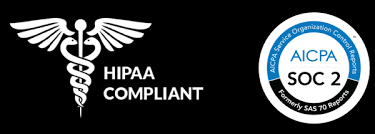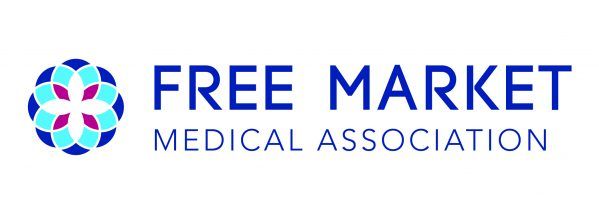
David Contorno
The Shift Toward Self-Funded, DPC-First Healthcare: A Revolution in Patient-Centered Care
Healthcare is undergoing a transformative shift, moving away from outdated, inefficient models and embracing more sustainable, patient-centered alternatives. A key innovation is the shift to self-funded, Direct Primary Care (DPC)-first plans, which offer significant cost savings for employers while improving care delivery and patient outcomes.
At the forefront of this healthcare revolution is David Contorno, a seasoned expert with over 30 years of experience in transforming the healthcare landscape. As the Founder and President of a leading healthcare consulting firm, E-Powered Benefits. David has become a vocal advocate for the self-funded, DPC-first model, challenging the traditional insurance system. He envisions a future where healthcare functions as an ecosystem—centered around transparency, quality care, and cost-efficiency—empowering employers and physicians to play pivotal roles in improving patient care.
Recognized as one of Forbes’ "Most Innovative Insurance Brokers" and BenefitsPro’s Broker of the Year, David is a sought-after speaker and advisor. His work continues to reshape the U.S. healthcare system, offering sustainable solutions that prioritize both cost savings and better care for patients.
Employer Benefits: Lower Costs and Improved Employee Health
For employers, the rising cost of healthcare premiums, deductibles, and out-of-pocket expenses have created an urgent need for more sustainable solutions. The self-funded, DPC-first model provides a way out—offering a path to significantly lower healthcare costs while improving employee care.
The savings are real. David Contorno and his team have worked with employers to implement self-funded health plans incorporating DPC. Here's how the savings break down over time:
- 20% savings in the first year (“crawl” phase) with basic plan changes.
- 35% savings as they transition more fully into the “walk” phase.
- 50-60% savings at the “run” phase, incorporating more robust changes and better care coordination.
These savings go beyond reduced premiums and lower deductibles. By eliminating insurance carriers and focusing on transparent pricing and value-based care, employers can negotiate better rates directly with providers and pharmaceutical companies. Additionally, focusing on more efficient care delivery reduces overall claims costs, leading to even lower stop-loss insurance costs.
The Doctor’s Perspective: A Return to Patient-Centered Care
For physicians, the self-funded, DPC-first model is a game-changer. After years of dealing with the constant administrative burden of insurance paperwork, low reimbursements, and the pressure to see more patients in less time, doctors are experiencing a burnout crisis. This leaves little room for genuine patient care or the time needed for meaningful doctor-patient relationships.
DPC gives physicians their autonomy back. By eliminating insurance companies from the equation, doctors can focus on what matters most: their patients. DPC models allow physicians to build long-term relationships, offer preventative care, and manage chronic conditions without the constraints of insurance limitations.
Moreover, DPC provides physicians with a predictable revenue model. Instead of worrying about fluctuating reimbursements or meeting quotas for insurance visits, physicians can establish flat monthly fees. This ensures stable cash flow, greater flexibility in scheduling, and more time spent providing high-quality care.
For many physicians, DPC offers the freedom to return to the roots of their practice—focused on patients, not paperwork.
Real-World Success: Data-Driven Care That Works
The benefits of moving away from traditional insurance models aren’t hypothetical—they are proven through real-world success stories. Employers have significantly reduced prescription drug costs, even for expensive brand-name medications. Through transparent negotiations and strategic partnerships with manufacturers, employers have been able to eliminate what would otherwise be a six-figure annual prescription cost for both the employee and employer.
Beyond medications, the adoption of data analytics has been pivotal in improving healthcare outcomes. Without the restrictions of PPO networks, DPC-first models give physicians and employers the freedom to steer patients toward higher-quality, more affordable care. Using data, employers can track outcomes, monitor patient progress, and identify areas where care can be more cost-effective.
Data also helps employers identify overutilization of services, ensuring that healthcare dollars are being spent wisely and efficiently.
Overcoming Obstacles: Changing the Way We Think About Healthcare
One of the biggest hurdles to adopting this new model is the familiarity and comfort employees and employers have with traditional insurance providers. Names like Aetna, Cigna, and Blue Cross Blue Shield are trusted brands that many fear abandoning. The thought of losing these logos can be intimidating, leading to concerns about quality of care and provider access.
However, as David Contorno emphasizes, healthcare and health insurance are two separate entities. The goal isn’t to change the care employees receive—it’s about restructuring how that care is paid for and delivered. With a self-funded, DPC-first approach, employees can still see the doctors they trust, but the way they engage with those providers is different. The flexibility of this model incentivizes employees to make more cost-conscious decisions while still ensuring high-quality care.
The Path Forward: Empowering Employers, Physicians, and Employees
As more large employers adopt self-funded, DPC-first strategies, the benefits will be felt across the entire healthcare ecosystem. Employers will save on healthcare costs while offering employees better care. Physicians will have the opportunity to return to more fulfilling, patient-centered practices. And employees will enjoy lower costs and more personalized care.
The future of healthcare is not just financial—it’s cultural. The shift toward DPC-first models represents a transformation in how we view healthcare. Employers, physicians, and patients all have a role to play in creating a more sustainable and effective system..
Final Thoughts: A Brighter Future for Healthcare Providers
The self-funded, Direct Primary Care (DPC)-first model offers physicians an exciting opportunity to reclaim their practice by reducing administrative burdens and focusing on building stronger relationships with patients. As more businesses adopt these models, physicians are at the center of a healthcare transformation that prioritizes quality care over bureaucracy.
This shift is more than just a financial solution—it represents a cultural revolution in healthcare. It enables doctors to practice medicine with greater autonomy, fostering a more sustainable approach to patient care while improving patient satisfaction and health outcomes.
For employers, these models offer a pathway to lower healthcare costs and more predictable spending, while ensuring their employees receive better, more personalized care. As this patient-centered approach grows, the future of healthcare looks brighter, benefiting both providers and patients alike.
A patient-first healthcare system empowers physicians, reduces costs, and strengthens relationships—ushering in a new era of care.
Call to Action
The time to embrace this shift is now. For employers looking to save costs and improve employee health, for physicians yearning for more autonomy, and for patients who deserve better care,
the self-funded, DPC-first model is the way forward. Together, we can create a more efficient, effective, and patient-centered healthcare system.
Interested to share your story?
Contact us today & Let us know!



